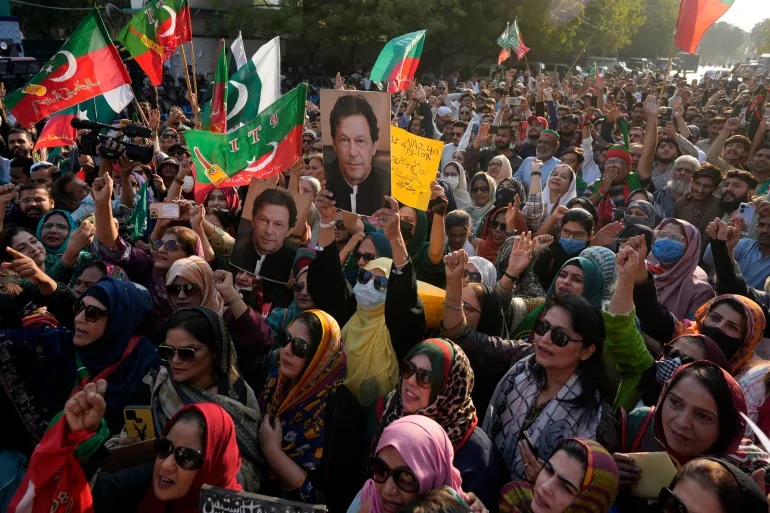Who is the Prime Minister of Pakistan Now
Islamabad, Pakistan: Seeing the historic October 29th of Pakistan’s general elections, is forecasting everyone’s future government. The PTI, which is the ruling party, is represented by independent candidates with ties to it and they are in the majority, but neither of the parties has received a majority of seats; the complex negotiations to form a governing coalition, therefore, are likely going to be essential.
The uncared-for country was entrusted to the caretaker Prime Minister, Anwar ul Haq Kakar, in August 2023, whose duty is to oversee the election process until a democratic government is voted into power. However, the ruling parties the Pakistan Tehreek-i-Insaf (PTI) and Pakistan Muslim League (N) (PML-N) take to frantic meetings with the independent candidates and smaller parties in a bid to get enough seats that will provide for the necessary majority.
Key Players and Stalemate:
- PTI: Installed by three-times former PM Imran Khan, the party enjoys the largest popular support with affiliated independents, though as yet it is short of a majority. Khan puts the footstool on a platform of other independents and claims to reform its structure.
- PML-N: (Periodizing by Shehbaz Sharif,) PML-N occupies the second most seats with over ninety percent of the members of parliament elected, and the party has talks with the smaller parties, including the PPP which has rejected their coalition proposal.
Negotiations and Challenges:
- From a support point of view, it is burdensome for both parties to have enough supporters. While PTI is the most powerful political party that has many backed-up independents, however, predictability concerning the independents is not absolute. PML-N, meanwhile, sinks into the impasse of trying to hold its coalition together without the PPP’s backing.
- Causing uproar by opposition candidates and masses protesting against EVM manipulation, the whole electoral process is made more complicated. The PTI rightly calls out the CEC, only further escalating the political conflict.
Uncertainties and Implications:
- Rather than rapid decision-making and leadership, the delay in forming the government creates confusion in the policy direction and economic measures. There is a wait for the picture of future administration to become clear as investors and businesspeople make moves in this period barely assuming any risk.
- Ongoing negotiation may be unfavorable for the political stability of Pakistan since it gives room for its fragmented political landscape to grow, in the long run, such movement may lead to political instability and later its impact on governance.
International Reactions:
- The UN Secretary-General, Antonio Guterres, has urged all stakeholders to deliver a peaceful transfer of power and to adhere to the election results so no one goes against them.
- The regional and international actors, like the United Nations peacekeepers, closely watch the situation, which is of great concern to them as it might affect the stability of the region at large.
Why has the Result of the Elections Pakistan is still not been announced
There are several key reasons why the Pakistan election results haven’t been finalized and a new government hasn’t been formed as of February 13, 2024:There are several key reasons why the Pakistan election results haven’t been finalized and a new government hasn’t been formed as of February 13, 2024:
No Clear Majority: There is no single winner across the parties which means that no party holds 169 seats as what is needed to form a government and run in single-party institutions in Kenya. This complexity includes the process of forming a coalition government as a uniting force that involves negotiations and agreements from various political sides.
Negotiations and Challenges: Both the PTI and PML-N parties are engaged now in the process of convincing some independent candidates and smaller political parties to form an alliance of parliamentarians. However, these negotiations are fraught with challenges: However, these negotiations are fraught with challenges:
Unreliable Support: In contrast, PTI has some independents on its side, however, such allies can not be guaranteed to stay pledged to PTI, which cannot easily build a stable coalition.
PPP’s Rejection: PML-N on the other hand is confronted as their choice partner (PPP) has refused to join along with them. It, in this regard, narrows down their alternatives and greatly impedes the process.
Allegations of Rigging: When some parties in the field, particularly PTI, bring up the allegation of vote manipulation or rigging, the unity among those who, otherwise, would become one is temporarily lost. Specific investigations and recounting of the vote in some parts also make the voting process slow.
Legal Hurdles: Furthermore, alongside PTI party leader Imran Khan’s eligibility to hold the office, legal dimensions reveal further intricacy in the situation.
Focus on Independents: The large number of independent candidates now, who have no party affiliation equaling each other, makes the coalition negotiations dynamic. They also need to be thought of as the customer side. This reflects one more complication in the process.
Compliance with the rules of the youth policy implemented in the territory of the municipality will help to overcome the mentioned difficulties rapidly and show the appropriate results.
However, you need to remember that the situation is fast-moving, and the ensuing days could bring new concrete actions that would be important to the final result. Giving attention only to reliable sources is important to keep track of the ongoing issues and those not covered in mainstream media.
Looking Ahead:
As elements of negotiations are rising each day and week are very important and instrumental for Pakistan’s political future. A government that is stable and legitimate is obligatory for addressing timely economic and social issues and for safeguarding democratic norms.


